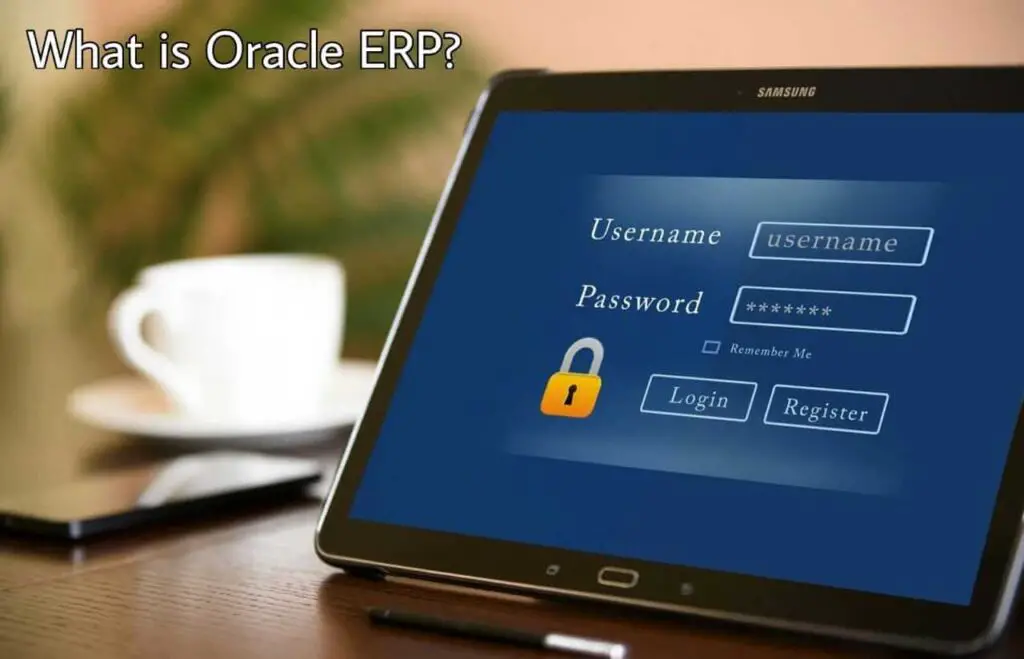
Oracle ERP means Enterprise Resource Planning which is a cloud-based ERP System or Software-as-a-administration (SaaS) which assists businesses with scaling and expanding as well.
It is used to automate back-office processes and daily business activities. Basically, it manages business functions which include project management, financial and accounting management, supply and chain management, procurement, etc.
This software runs on Oracle technology stake in highly secure Oracle cloud centers.
ERP Oracle software supports hybrid deployment and can easily be accessed through private and public cloud implementation.
Oracle ERP Benefits
- Oracle is one of the toughest competitors in the whole ERP market today.
- The Oracle ERP provides an extensive bundle of applications that not only helps businesses to take informed decisions but also to reduce their expenses and boost business performance.
- It benefits organizations to get better time value which improves growth.
- Various businesses are benefited from its quick manageable and customizable reports.
- Businesses can implement new functions at a much faster and better reliable rate in comparison to traditional implementations.
- Sharing data is very easy and highly secured between users as security is the major priority of Oracle.
- Analytics, reporting, automation tools, and user experience are important components for users.
- Oracle ERP cloud comprises an incorporated set-up of utilizations for overseeing different business activities.
According to the organization’s site, there are around nine distinct programming modules that make up the Oracle ERP Cloud suite that incorporates :
Modules of Oracle ERP
- Financials: Tools join cash the board, general record, payables, receivables, charges, and advanced collections to say the very least.
- Accounting Hub: The goal of this module is to smooth out bookkeeping and general records, mechanize cost handling, and report on new KPIs.
- Procurement: This module gives buying arrangements that mechanize get-to-pay exchanges while implementing arranged estimating with endorsed providers.
- Project Management: You can see progressing task status, invigorates, and measure execution while offering an explanation to make better business decisions and match resources with open endeavors through more conspicuous detectable quality.
- Risk Management: Organizations can automate their access and segregation of duties to control and prevent fraud. It diminishes cash spillage, mistakes, and consistency infringement by constantly observing your secure to-pay and expense controls.
- Enterprise Performance Management (EPM): It tracks business performances by various accounting methods by providing better visual data.
- AI Apps for ERP: This feature helps in finance and improved performance, optimize working capital and increases automation across payables, and receivables.
- Supply Chain Management (SCM): It tracks your organization’s store network from one finish to another. Further, develop perceivability into stock administration and arrange your request the board cycle and resolve special cases, decrease expenses, and increment calculated effectiveness.
- NetSuite: It assists associations with working all the more viably via mechanizing center cycles and giving ongoing perceivability into functional and monetary execution.
It’s the straightforwardness of information sharing and interconnectivity that supports facilitated exertion, allowing laborers and workplaces to grasp business data faster and better.
Why is ERP so valuable in business?
The importance of ERP in business operations can not be ignored. As Enterprise data and processes are compiled into ERP systems, businesses can align separate departments and by which they can improve workflows, which saves in the bottom line.
Here are some important points which illustrate its advantage in the business world:
- Report generated by the system improves business insight through real-time information.
- Best practices through streamlined business lower Operational costs.
- By users sharing data in contracts, requisition & purchasing orders enhances collaborations.
- Well-defined business and common user experience across various business functions improve efficiency.
- All business activities look the same and feel the same with consistent infrastructure from the back office to the front office.
Oracle ERP cloud-based delivery model: Software-as-a-service (SaaS)
Initially, the ERP software was accessed through a network of remote servers. But now the process is completely under the control of the company’s server room.
Updating and managing the software took several times a year instead of expensive upgrading every 5-10 years with an on-premises system.
Cloud reduces both operational expenses and capital expenses by eliminating the need for companies to purchase software, and hardware or hire extra IT staff.
So, these resources can be invested in better business opportunities. Employees now can focus more on innovation and growth rather than managing IT.
Why you should move to an ERP cloud solution:
- It readily adapts to new and evolving technologies
- And improves the value of your existing ERP system
- By lowering or reducing the third-party dependency
- And evolves as well as attracts demanding talents
How Oracle Cloud ERP helps you make better business decisions
By reducing the struggle of balancing traditional ERP’s high cost and complexity against the need for customized features and flexibility. All while the meetings are in demand of the business.
We can observe and learn how the Oracle ERP Cloud delivers connected teams, unified data, and real-time insights to help you and your company’s finance that ensures that the business decisions are made with delivered ERP as service in the cloud, your business can be fully future-ready and outpace change.
How to Get started with ERP Oracle
The best benefit of the SaaS model is that the software is kept up to date with better features and functionality and better practices. ERP Oracle cloud gives roll-out regular updates on a monthly basis. This means that the newest technologies whether it’s AI, virtual or digital assistants, Machines and deep learning, and other internet stuff became readily available to regular cadence on a subscription basis.
Only because of these new techs organization can swiftly improve their business and their ERP software evolve, They can easily automate processes. That used to require heavy manual intervention, it can be the reconciliation of financial accounts. Anything less won’t even move an organization forward
